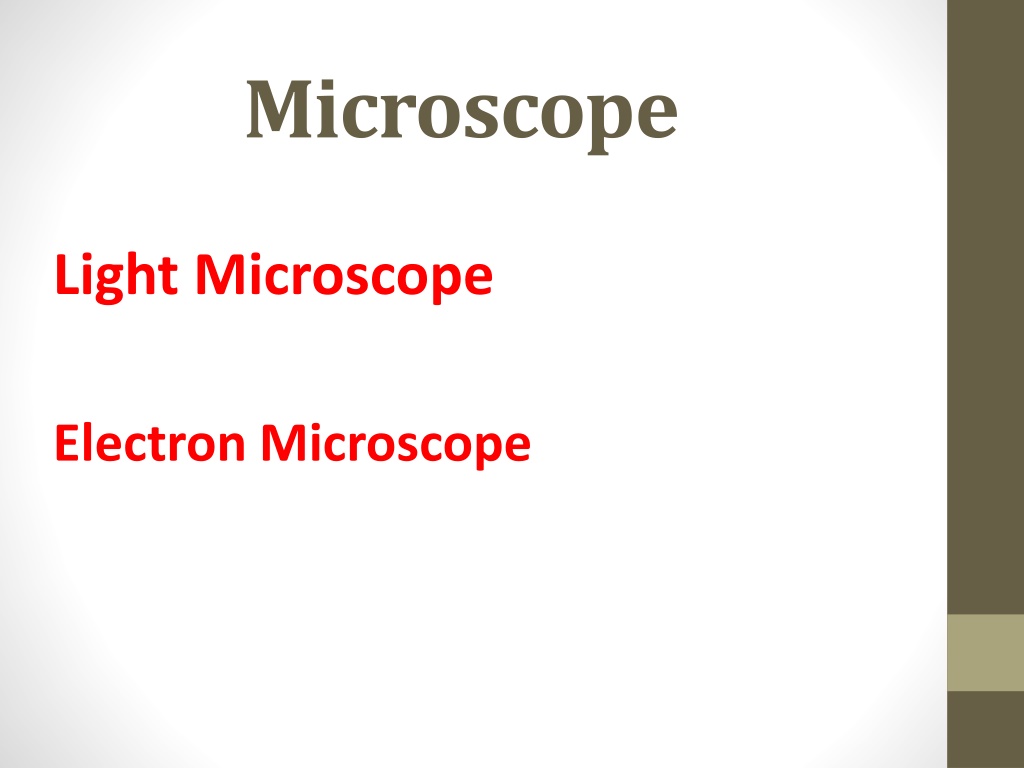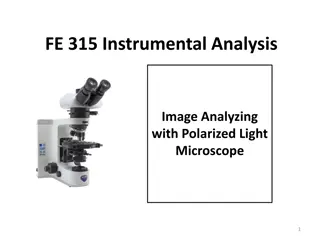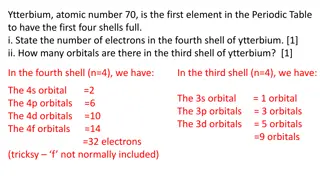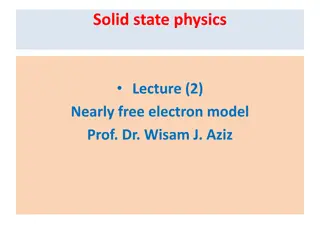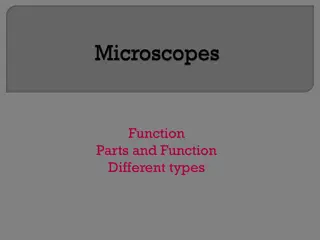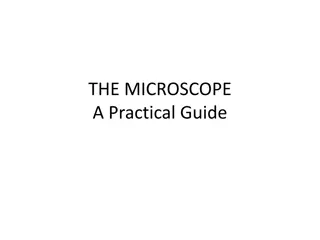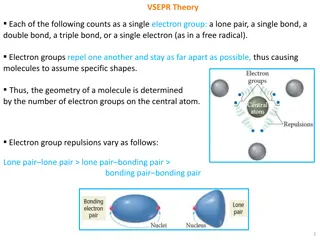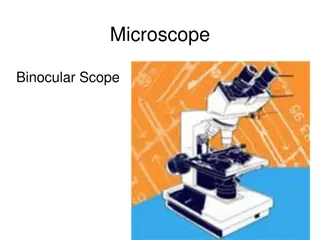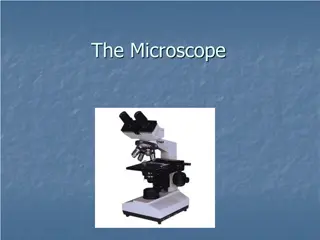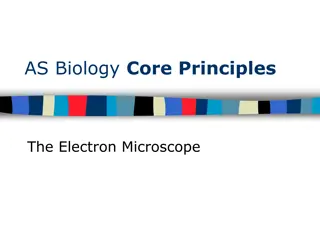Understanding Microscopes: Light vs. Electron Microscopes
Learn about the differences between light microscopes (LM) and electron microscopes (EM), including their magnification power, resolving power, and key parts. Explore the types of electron microscopes such as Transmission Electron Microscope (TEM) and Scanning Electron Microscope (SEM) for advanced imaging capabilities.
Download Presentation

Please find below an Image/Link to download the presentation.
The content on the website is provided AS IS for your information and personal use only. It may not be sold, licensed, or shared on other websites without obtaining consent from the author. Download presentation by click this link. If you encounter any issues during the download, it is possible that the publisher has removed the file from their server.
E N D
Presentation Transcript
Microscope Light Microscope ElectronMicroscope
Light Microscope (LM) The Magnification power of the LM is limited to 1000-2000 X. The Resolving power (resolution) of the LM is 0.2 m. The resolving power (resolution) is defined as the smallest distance between two particles at which they can be seen as separated objects. Note: 1 m = 1e-6 m
PARTS 1. 2. 3. 4. Eyepiece Lens: Base: Stage: Revolving Nosepiece or Turret: Objective Lenses: Diaphragm or Iris: Coarse adjustment knob: Fine adjustment knob: 5. 6. 7. 8.
Electron Microscope (EM) The Magnification power of the EM is limited to 2,000,000 X. The Resolving power (resolution) of the LM is 0.1 nm. The resolving power (resolution) is defined as the smallest distance between two particles at which they can be seen as separated objects. Note: 1nm = 1e-9 m
Types: 1. Transmission Electron Microscope (TEM) 2. Scanning Electron Microscope (SEM)
